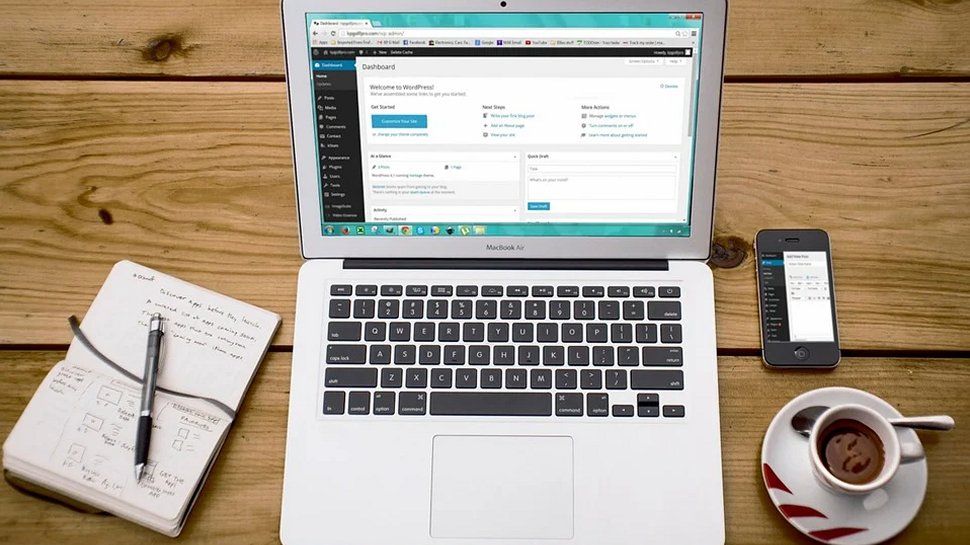Are you tired of browsing the internet, dreaming about your successful online business? Look no further! Website flipping is one of the most lucrative businesses in today’s digital age.
You can turn an underperforming website into a profitable venture with some know-how and elbow grease. In this ultimate guide to website flipping, we’ll provide you with all the tips and tricks you need for success.
We’ve got you covered, from finding the right website to optimizing its potential. Let’s get started on this exciting journey towards financial freedom!
What is Website Flipping?
Website flipping is the process of buying, improving, and selling websites. Flippers typically buy low-quality or underperforming websites, improve them, and sell them for a profit.
The key to successful website flipping is understanding what buyers are looking for and knowing how to improve a website to make it more appealing to potential buyers. With the right approach, website flipping can be a great way to earn money online.
Benefits of Website Flipping
There are many benefits to website flipping, but some of the most notable include the following:
1. You can make a lot of money.
2. It’s a relatively low-risk investment.
3. You can get started without a lot of experience or knowledge.
4. It’s a great way to learn about web development and marketing.
5. You can build a portfolio of successful websites.
6. You can sell your business when you’re ready to retire.
7. It’s a fun and challenging business venture.
The Steps Involved in Website Flipping
Assuming you already have a website up and running, generating traffic and income, a few key steps are involved in flipping that website for a profit.
1. Firstly, you must create a sales page on your website detailing why someone should buy it from you. This will include highlighting the traffic statistics, income generated, and other relevant information potential buyers want.
2. Next, you will need to find buyers for your website. You can reach out to people in your industry or niche who may be interested in acquiring a website or by listing your site on a marketplace like Flippa.
3. Once you have found a buyer, you will need to negotiate a price and agree on the terms of the sale. Once this is all finalized, you can transfer ownership of the website to the buyer and receive payment.
Identifying Potential Candidates for Flipping
There are a few key factors to consider when identifying potential flipping candidates. The first is the age of the domain. Generally, you want to target fields at least a year old and preferably older. This shows that the site is stable and not just a fly-by-night operation.
Another critical factor is the traffic volume. You want to target sites with a consistent traffic stream, ideally at least a few hundred visitors per day. This indicates that there is interest in the site’s content and that it has the potential to grow even further.
Finally, you want to look at the site’s monetization methods. Is it generating revenue from advertising, affiliate commissions, or product sales? If so, this indicates that a proven business model is already in place, which makes flipping the site much more accessible.
Evaluating Websites Before Buying
When you’re looking to buy a website, you should evaluate a few key things before purchasing. First, take a look at the site’s traffic statistics. This will give you an idea of how much traffic the site is getting and where that traffic is coming from.
You’ll also want to look at the site’s content to see if it’s high quality and relevant to your niche. Finally, check out the site’s backlink profile to see if it has links from high-quality websites. If the site has all these things, it’s likely a good purchase.
Negotiation and Purchasing Processes
The negotiation and purchasing process can be pretty straightforward if you’re looking to buy an already established website. However, a few key things must be remembered to ensure a smooth transaction.
First, it’s essential to have a clear idea of what you’re willing to pay for the site. Once you’ve determined your budget, it’s time to start negotiating with the seller. It’s important to remember that the seller likely has a different idea of what the website is worth than you do, so feel free to haggle a bit.
Once you’ve agreed on the price, it’s time to start working out the purchase details. This includes payment method (wire transfer, Escrow, etc.), who will transfer the domain name, and any other necessary information. Once again, clear communication is vital here to avoid any misunderstandings.
Assuming everything goes smoothly, Congratulations! You’re now the proud owner of a new website.
Strategies for Selling Your Sites
To sell your websites, you must assembleales a deck and find the right broker or marketplace. Your sales deck should include information on your website’s traffic, revenue, and any other pertinent details that will help buyers understand the value of your site.
Once you’ve found the right broker or marketplace, you must create a listing and set a price. Be sure to consider the fees associated with selling your website; most marketplaces will charge a percentage of the final sale price.
When it comes time to sell your website, be prepared to negotiate. Buyers will often try to lowball you, so it’s essential to understand your website’s worth before beginning negotiations.
If you’re uncomfortable negotiating on your own, consider hiring a professional broker to help you get the best possible price for your website.
Tips for Avoiding Common Pitfalls
1. Don’t overspend on your website. It’s tempting to want to spend a lot of money on your website when you’re first starting but resist the urge. You can create a professional-looking website without breaking the bank.
2. Remember to underestimate the power of SEO. Many people think they can throw up a website, and people will find it. But if you want people to find your site, you must invest in basic SEO.
3. Stay attached to your domain name. It’s easy to connect to a particular domain name but remember that you can always change it later if needed.
4. Remember maintenance. Once your website is up and running, remember it! Make sure you keep it updated with fresh content and perform regular backups.
Conclusion
Website flipping can be a great way to make money online, but it takes time and effort. You can increase your chances of success with the right tips and tricks.
We hope this guide has provided you with helpful insights into website flipping so that you can get started on the path to making a profit from buying and selling websites. Remember, always do your research before investing in any venture, including website flipping. Good luck!



